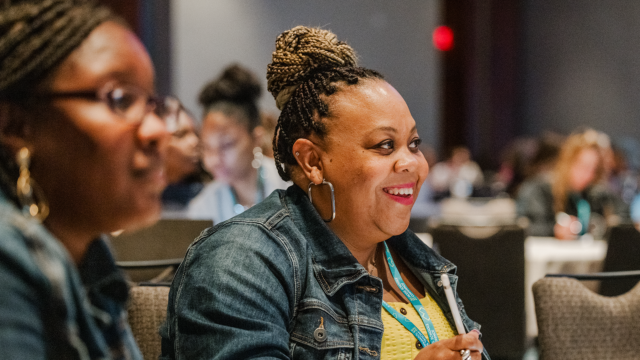
A prediction or a hope? Sometimes it can be hard to differentiate between the two. The actions we take today may or may not have the intended results tomorrow, but educators can do their best to bring about change in their school districts.
My crystal ball isn’t always accurate, so I’ll rest with hope. For there is no teaching and learning without hope.
My hope for 2019 is that more schools embrace personalization. Tools and research have converged to present the best chance yet for schools to shed their 20th-century and (dare I say) 19th-century models of teaching for the 21st century. This is not to say my hope/prediction will come true, as there is still much to overcome.
It pains me when I hear or see children learning to read from basils, mathematical concepts taught in just one way—yes, even in this age of Common Core—or teachers lamenting students who are unprepared for the upper school content area. Within each of these scenarios and many more, the depth and breadth of school tradition holds a firm grasp even within the opportunities technology affords schools.
Innovative schools and districts are exploring personalization with hardware, software, and web tools that allow students to practice, learn, and excel within their own pace. This requires an intentional approach, the appropriate allocation of resources, multiyear planning, and professional development that follows or even leads the use of tools and ongoing coaching.
Teachers should use time and energy to explore curriculum development that provides unique platforms for individual student learning. But instead of leaning on outdated curricula or excuses, teachers should provide opportunities for practice, re-teaching, and new ways students can show us what they know.
Excitement and motivation grow when we meet the needs of children with tools that they’ve learned to use while still in diapers. Harking back to my own teaching, circa 2000, I remember the understanding, collaboration, and increased points of view that occurred when I introduced a cutting-edge tool—instant messaging—when discussing love, confusion and intent during our unit of study on Shakespeare’s A Midsummer Night’s Dream.
Back in 2001 during our computer room time, students took on a character of their choosing and instant messaged other characters to clear up confusions of the plot or in some cases simply create more. Other students professed their love or dared to cut ties with their love interest. Beyond great fun, students learned valuable lessons about communication while showing their understanding of the play.
IM has been replaced, but the idea of teachers sharing their thoughts through technology has only grown in this time. So should the innovation of how we reach kids.
The views expressed in this article are those of the author and do not necessarily represent those of HMH.
***
You can book a keynote with Anthony Colannino to bring his expertise about instructional excellence and growth mindset to your school or district.

















